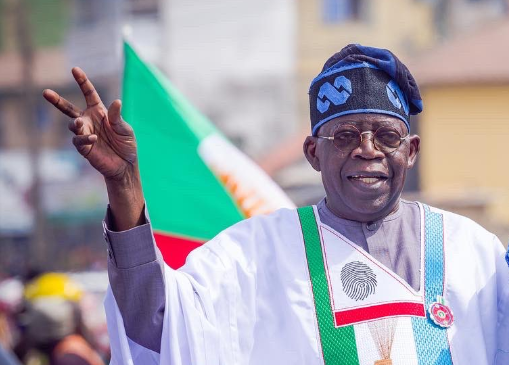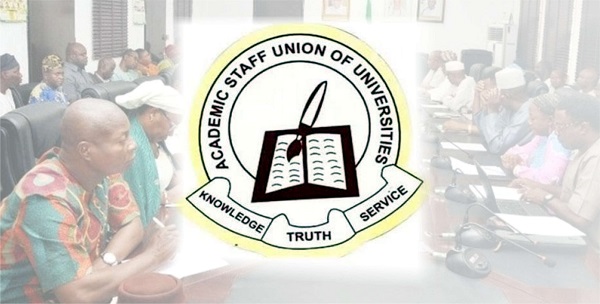by Waziri Adio
That simple call might end up as the most important call made by Jonathan in his 16-year political career. Long after his achievements and failings might have been forgotten, that call, and the difference it made, will still be remembered.
All it took was just a phone call, an unusual one at that. From the tape, leaked for a reason I still struggle to fathom, the phone call did not even last a minute—from initiation, through transfer, to customary protocols, actual message and sign-off. No quotable line leapt out of the staccato, and sometimes overlapping, conversation. In fact, the rushed discussion was tinged with awkwardness on both ends of the line. But the call did its job. And on account of that efficient call, we can all breathe again.
Most Nigerians, and close observers of Nigeria, had held their breaths as the March 28 presidential election approached. Most people went into that election with understandable unease. Even the most optimistic among us expected some form of disputation and some post-election violence, no matter how localised and how easily containable. But President Goodluck Jonathan, happily, removed that probability by making that ordinary yet significant call.
What he did is much more significant than conceding defeat and congratulating his opponent, Major General Muhammadu Buhari (rtd). As important as the historic aspect of that gesture is, the real significance of it is that President Jonathan brought down the heat in an overcharged polity, and simultaneously disarmed his supporters and opponents, lessening the disappointment and constricting the space for violent reaction for the one and eliciting pleasant surprise and respect from the other.
Some have argued that Jonathan should not be overly lionised for doing what was merely expected of him. They contend that he did no one any favours by conceding after clearly losing an election. They have a point, up to a point. To be sure, some of his supporters are over-stating their case. In the spirit of the moment, even that should be indulged. Truth is that there are a few options, which are not illegal and not undemocratic, that Jonathan could have taken and which could have heighten the heat or provided an undesirable spark. But Jonathan chose the path of honour. Normalcy returned and we all heaved a huge sigh of relief. The predicted combustion did not happen. Instead, what erupted were muted and giddy celebrations in some quarters and grudging and gracious acceptance in others. What if Jonathan had chosen to bring down the house?
That simple call might end up as the most important call made by Jonathan in his 16-year political career. Long after his achievements and failings might have been forgotten, that call, and the difference it made, will still be remembered. It was a leadership call, a confirmation that the enduring leadership acts might not necessarily be the concrete actions on roads and bridges but the simple symbolic gestures. It is also an affirmation that leadership is not a position but what people do with or without authority. Jonathan has done himself and the country a world of good by exercising real leadership at this very critical moment. It might not exactly grant him the apotheosis that his ardent supporters long for, but that gesture has surely redeemed him in the book of many Nigerians. He has earned himself a place in the sun.
It is a not a sole honour though, even when he has a good claim to a choice spot. Nigerians across the divides also succeeded in earning a place for themselves and our country through the largely remarkable way they conducted themselves in this election. For once in a long while, Nigeria has been in the news for the right reasons. Nigerians endured the elements, the searing sun and the drenching rain, to cast their ballots.
They put up with long hours and discomforts and rallied around electoral officers and themselves to vote and ensure that the votes count. In all, Nigerians have demonstrated that they are passionate about democracy, about making their voices heard, and about changing their governments peacefully through the ballot box. The electoral commission, under the distinguished leadership of Professor Attahiru Jega, has also shown that organising decent elections is not beyond us as a people. Clearly not everyone will be happy with the final results of the election, but this is a very rare moment for all Nigerians, a moment to walk tall again, a moment to restore the spring to our steps, our rare moment in the sun.
As we savour this moment, it is very important to harness and build on the opportunities that have come with it. One expression that we will hear a lot of in these heady days is that we have finally consolidated our democracy. That’s some hyperbole. The fact that an incumbent has been defeated and has voluntarily yielded space does not mean democracy has been consolidated. We are marching steadily towards democratic consolidation, but we are not there yet. Additionally, we need to remember that democracy is not desired just for the sake of it. Beyond the ecstasy of voting out a government, we need to focus on constantly improving the quality of our democracy and, more important, on ensuring that democracy translates to good governance. And for this to happen, we need to continue to push the frontier of electoral reform and continue to strengthen the capacity of citizens and civic groups to demand responsive, effective, equitable and accountable governance.
General Buhari, the President-elect, needs to seize the moment to make it all count. So far, he has been extremely gracious in victory, remarkable for someone who got elected after trying for the fourth time. This graciousness must be sustained. He must actively rein in the triumphalism of some of his supporters and the growing clamour for inquisition. To be sure, some questions need to be asked, clear lines need to be drawn, and some restitution needs to happen. But these shouldn’t be the main work, or at the expense of the main work. Fact is that there is so much work to be done and it is easy to get side-tracked or lapse into work-avoidance. Buhari and his team should be deeply worried, scared even, about the level of support he enjoys and the huge expectations embedded in that.
Apart from the burden of expectations, honeymoons do not last forever, and his may be one of the shortest. The excitement of the moment will soon wear off and even Buhari’s avid supporters will start scrutinising his every word and move to be sure they have not been sold lemon in the name of Change. The people who didn’t vote for him or still do not believe in him will continuously scout for signs to reinforce and justify their positions. It is not inconceivable that, if he doesn’t deliver or doesn’t deliver on time, those who campaigned ardently for and against Buhari in this election may come together and make common cause against him. The only way to make positive capital out of the effusive goodwill of this rare moment is for the president-elect to learn from how the outgoing president frittered away his own goodwill, and for Buhari to hit the ground running.
————————-
Op-ed pieces and contributions are the opinions of the writers only and do not represent the opinions of Y!/YNaija.














